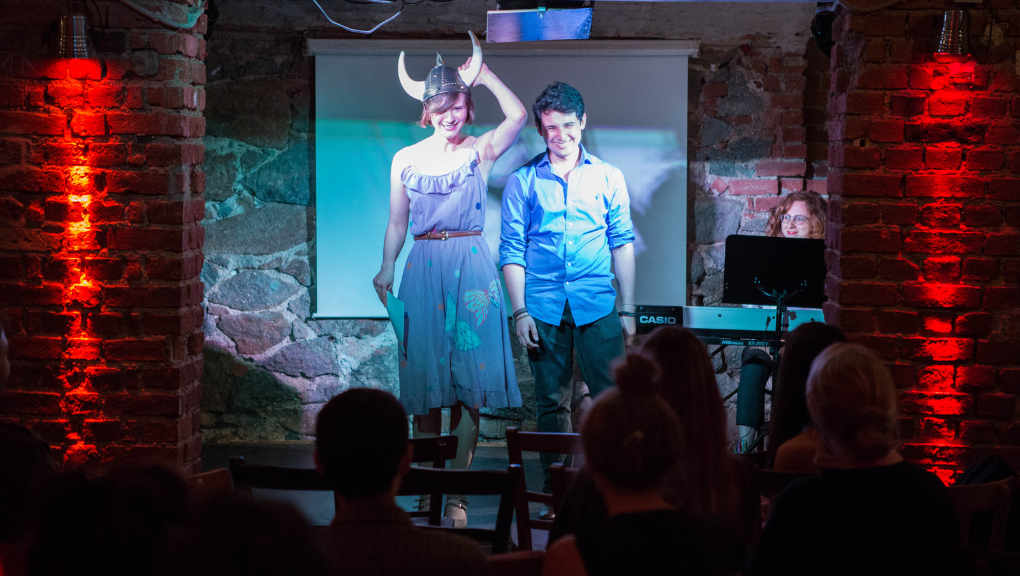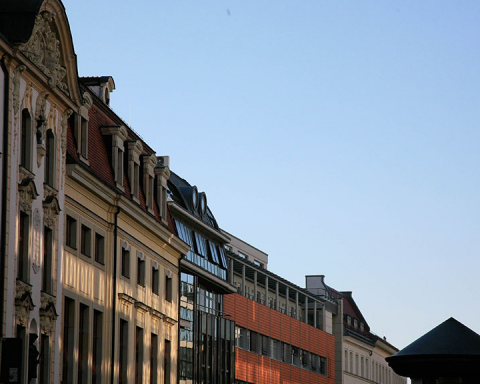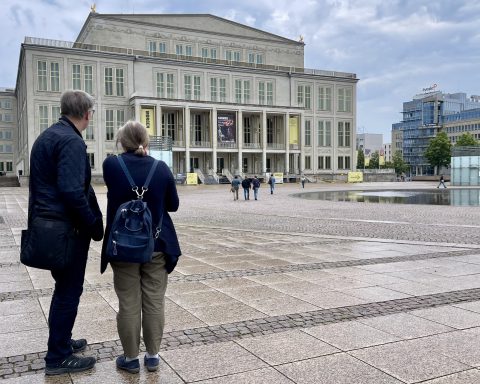To me, somewhere between the stages of grief and the stages of a relationship, lie the stages of learning German. What we have will probably never turn into a marriage consecrated by the dictionary priests, but a domestic partnership would suffice.
After nearly six years in Leipzig, I feel it’s about time to quit screwing around and just go for it.
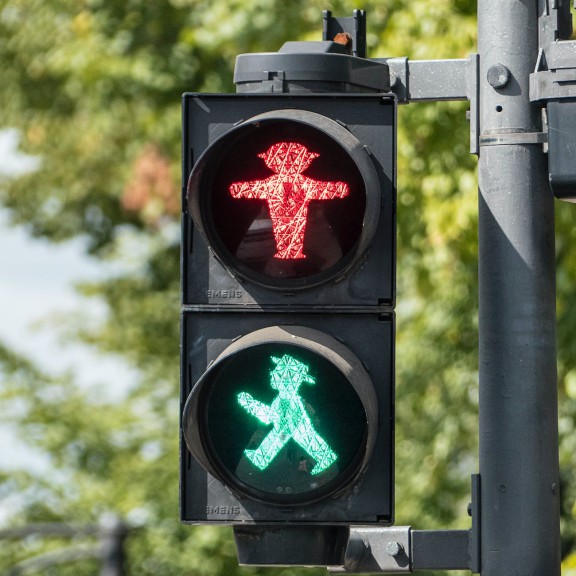
“It’s complicated” and a bit dysfunctional right now, with this stubborn, capricious, unforgiving language, its kilometric strings of letters. Fortunately, though, it doesn’t feel completely hopeless. I have the ladies at Sprachschule Paroli to thank – for their patience, good humor, small groups, and teaching talent.
They manage to show me German’s redeeming qualities, like its surprisingly beautiful… precision.
After another twice-weekly class and a slight Kopfschmerzen – induced by two-part verbs that insist on coming apart – I began reflecting on how we got to this point after many ups and downs.
How did an absent-minded flirtation turn into a crush, then disappointment, and finally an uneasy love of sorts – or at least acceptance? Perhaps you can relate to my experience somehow.
My 5 stages as a German learner (so far)
1. The long-distance flirtation
Very, very light flirting, that is. Well before I moved to Germany, friends and pop culture introduced me to (hardly mind-blowing) words and phrases like “danke sehr,” “guten Tag,” “auf Wiedersehen,” “Edelweiß,” “Gesundheit,” “Speiseröhre,” and “Hauptbahnhof.” I used them more as a joke back in those days.
Busy juggling parallel relationships with Danish and Polish (which didn’t end well), I had not gone beyond those very superficial encounters with German. And so, this was basically the extent of my vocabulary when life pushed me into moving to Leipzig (from Wroclaw, Poland) in Summer 2012.

2. The honeymoon period
Even my first close encounters with Sächsisch, at the Ausländerbehörde, didn’t cause me to want to disappear on German. Those were heady days, indeed. My equally lovestruck foreign flatmate and I would frolic across Leipzig’s Number 4 and 7 trams, ever exclaiming “Entschuldigung!”, whether or not it was required.
I’d ride the old bike I’d brought from Poland to my A1 German course, even when it got cold and rainy, and enter the classroom with a maniacal smile. Another foreign classmate and I would make (immature) fun of how the textbook unit “Sechs – in der Cafeteria” sounded to us.
That joke never got old, and even the teacher laughed every time! German seemed to open up to us like Blumen im Frühling.
3. The reality check
The phrase “Es könnte schlimmer sein” popped out in red from the white board in our kitchen. Our German flatmate had written it there, in one of her futile attempts to get us to practice German in our apartment. The phrase could also be used to describe my German level at the time.
Over the next two years, I’d manage to trudge along to the end of B1. But while my enthusiasm for socializing with my classmates hadn’t waned, my commitment to truly getting to know German certainly had. The sheer dedication that it would take to make it work long-term – and even at all in daily life – with this sometimes indecipherable language discouraged me.
I found the gaps in my knowledge to be embarrassing and easily fell back into using English, which in turn widened this gap.

4. The temporary breakup
My embarrassment and constant trips abroad – for guys, family and my English-language PhD – crippled my German communication at a critical juncture. I tried and flunked the B2 entrance test at Volkshochschule, and that was enough for me to slam on the brakes of an already sputtering endeavor.
The brakes stayed on for about three and a half years.
It was during this period that I started The Leipzig Glocal, at first for those whose German was kinda like mine. But then people of different levels of German started reading it, and Germans started wanting to promote their events and businesses in it. I started feeling the need to rekindle my old relationship with German.
5. The second chance
At some point, I decided I wanted more than a fling with living and working in Leipzig. This ideally meant being able to engage on more equal footing with loved ones and with potential business relations aus Deutschland. I saw myself being pushed, more and more, into speaking and writing auf Deutsch.
Mistakes came with every other word when I tried to string them together into anything intelligible out loud.
At first, I used crutches – ahem, Google Translate – whenever they were available, then tried to wean myself off of them. When people met me, they must have noticed right away that my German had been better “on paper” (cuz it kinda wasn’t mine).
About two months ago, I signed up for the B1+ evening course at Paroli in Reudnitz. Funnily enough, that’s just a few blocks away from that first flat share I had in Leipzig, and from my flat share now as well.
I returned to where I’d started, in more than one way.
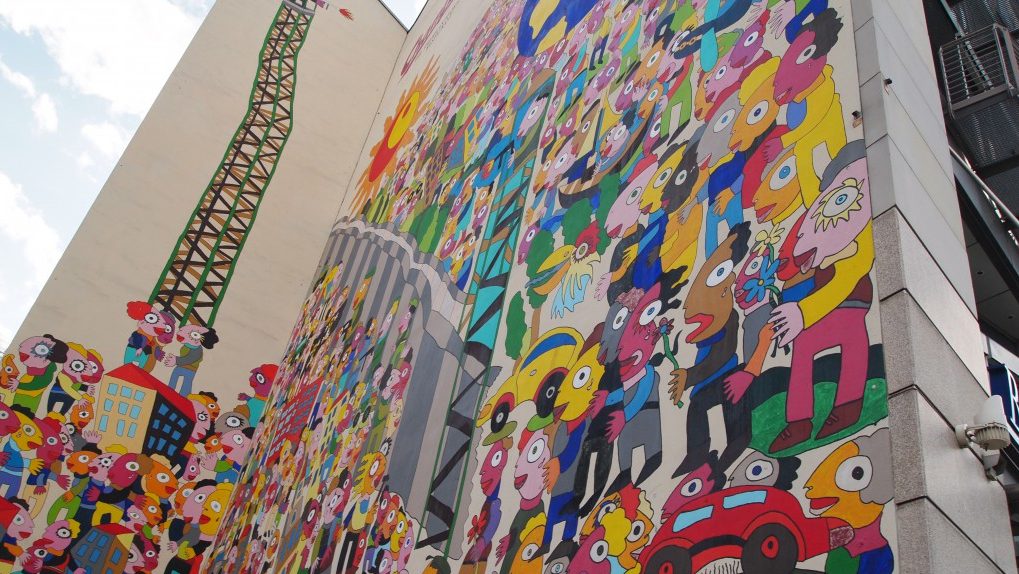
While my infatuation, admittedly, will never be the same as in those early days of Leipzig, I am hoping for a deeper, more sober and realistic kind of love with the language. I now accept that it will take serious time and effort for my relationship with German to be consolidated, and am trying to be kinder (not Kinder – false friend) with myself, too.
At the moment, I’m just glad to be able to pick up a little bit ahead of where we left off quite a while ago. German and I haven’t, after all, given up on each other – but now we take it day by day.





